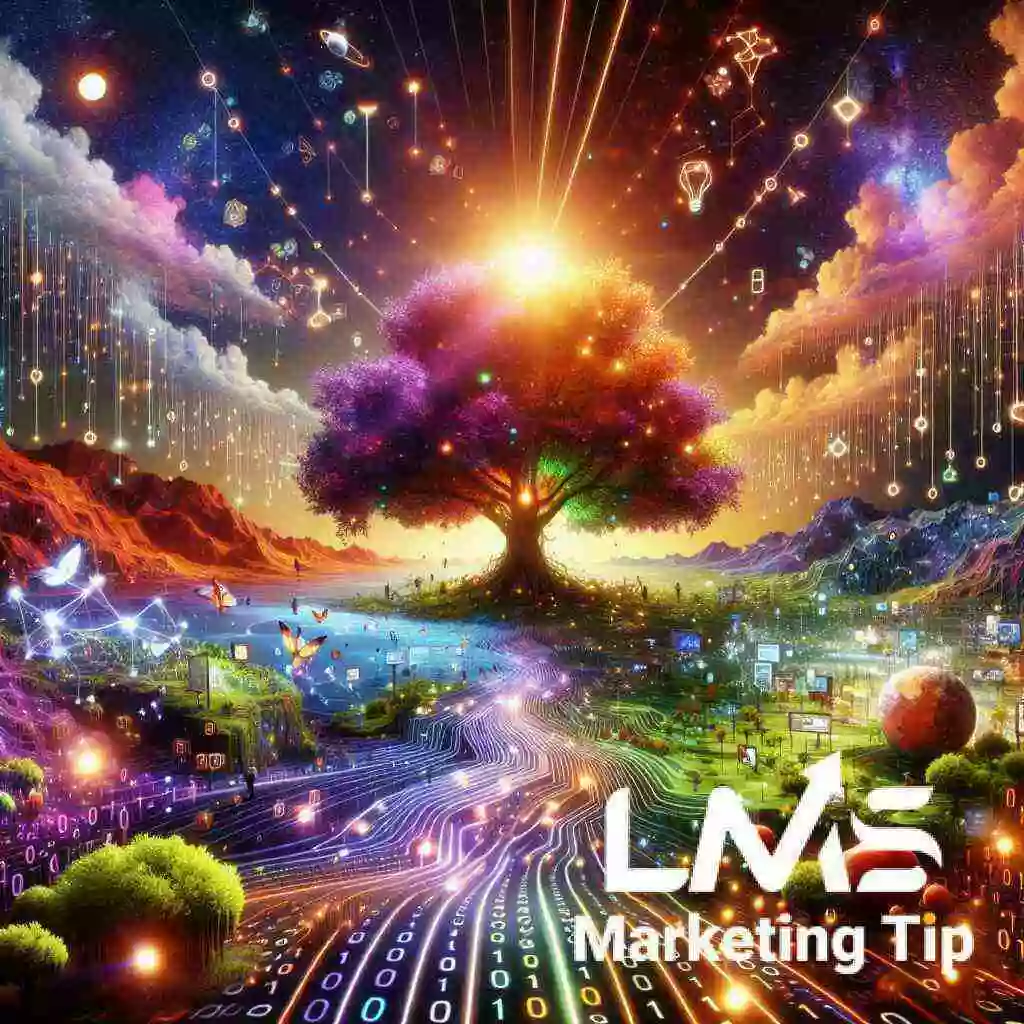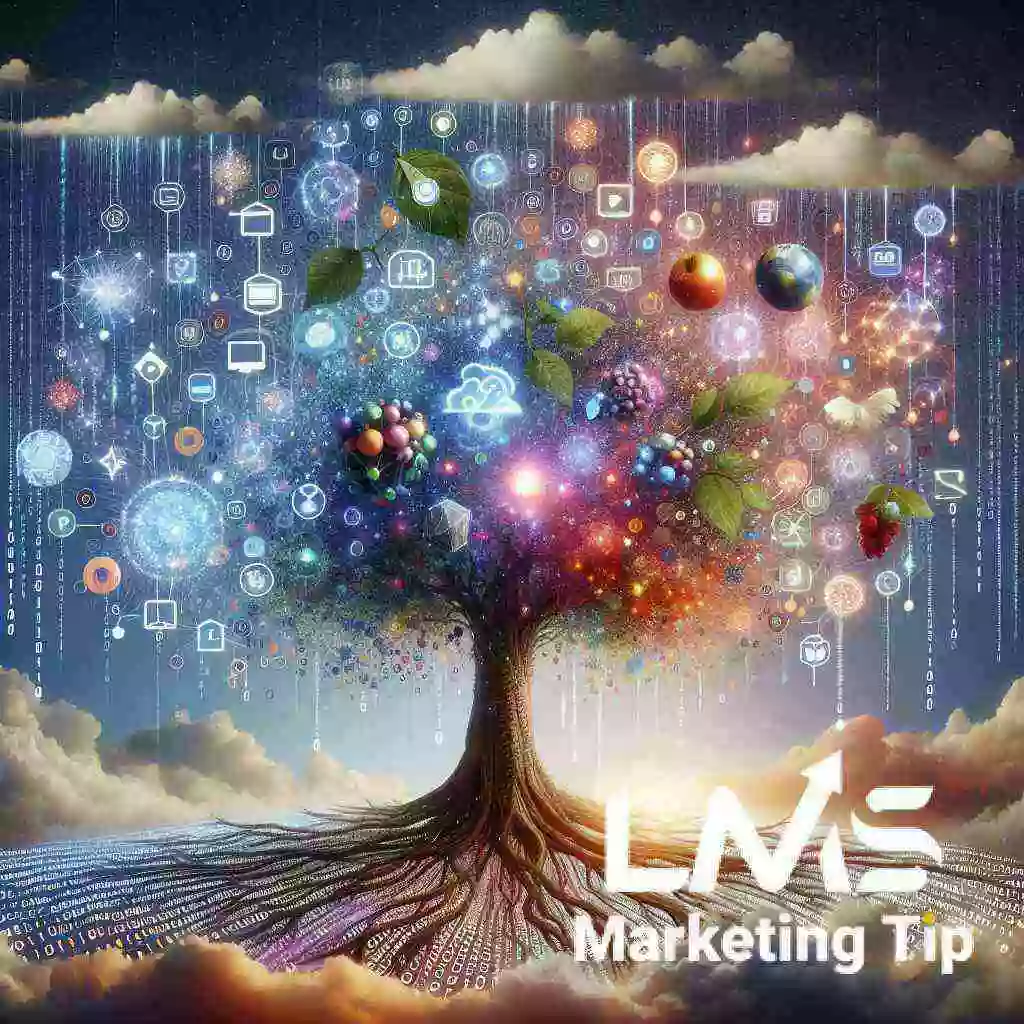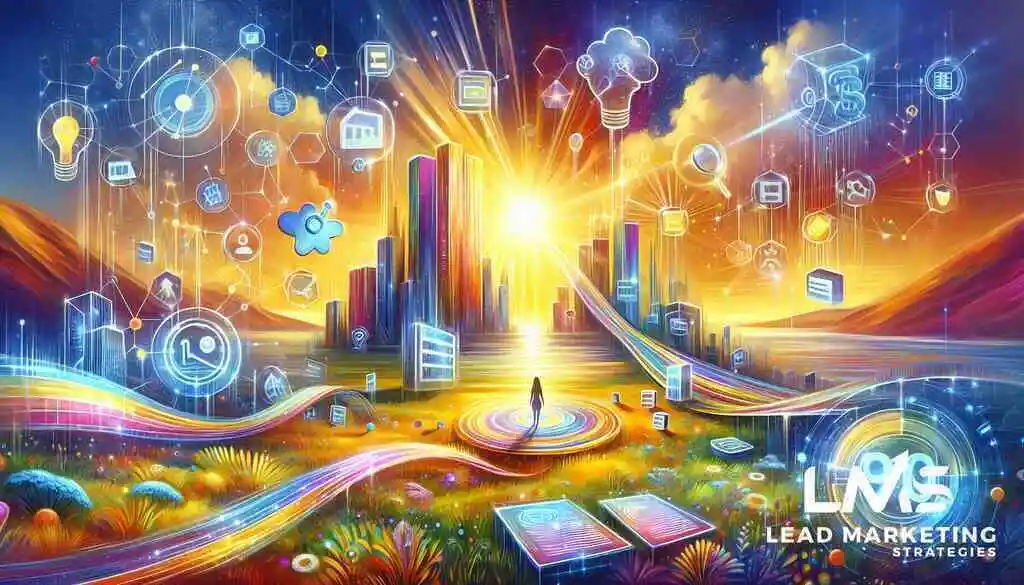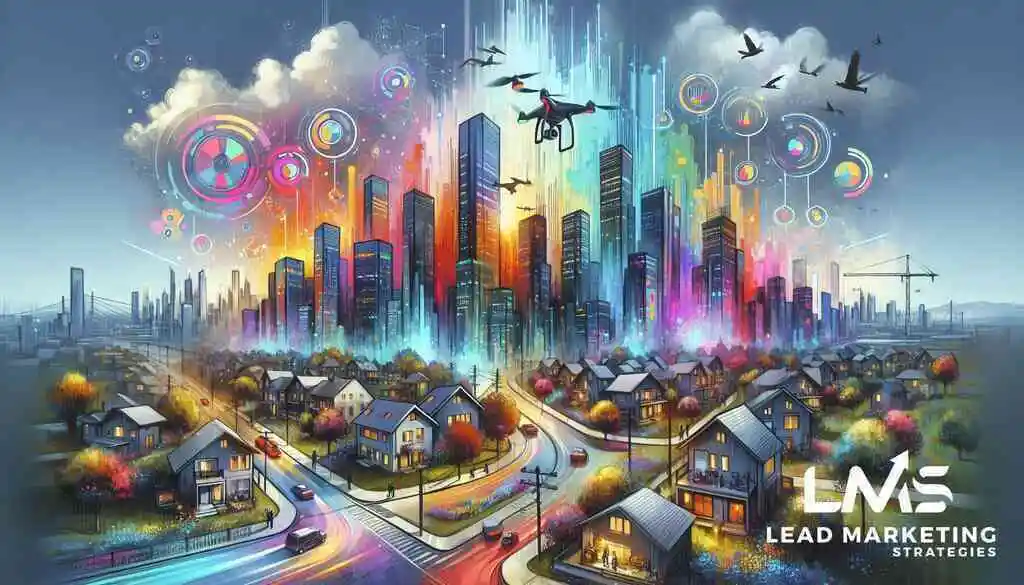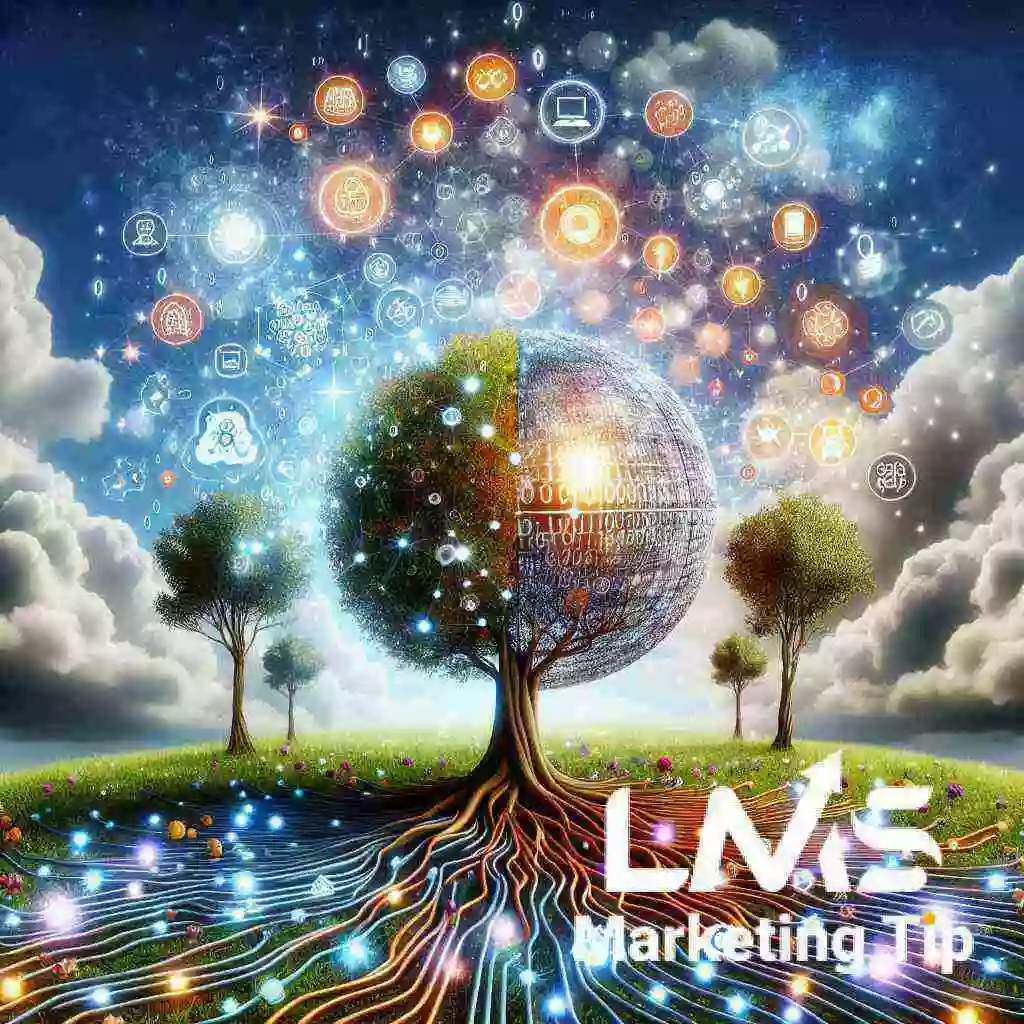
Embracing the Future of Marketing
Understanding 2024 Digital Marketing Trends
The landscape of digital marketing is evolving rapidly, with innovations and technology continuing to transform how businesses connect with their audience. In 2024, we are poised to see a significant shift towards more immersive, interactive, and personalized marketing strategies. Trends such as the increased use of artificial intelligence, the rising importance of voice search optimization, and the expansion of influencer marketing underscore the need for businesses to adopt a more nuanced and sophisticated approach to their digital marketing efforts. Keeping abreast of digital marketing trends for 2024 is essential for any company aiming to stay competitive and relevant in a quickly changing digital landscape.
The growth of video marketing represents another critical trend. Video is becoming an indispensable tool for engaging audiences, conveying brand messages, and showcasing products or services. As video content continues to dominate social media platforms and websites, understanding the nuances of video marketing growth and how to leverage it will be crucial for effective digital strategies in 2024.
The Importance of Staying Ahead in Marketing
Staying ahead in the ever-evolving digital marketing arena is not just beneficial-it’s essential. To thrive, businesses must anticipate changes, adapt their marketing strategies proactively, and embrace innovation with open arms. This approach enables companies to capitalize on new opportunities, enhance brand awareness, and achieve measurable results in an increasingly saturated market. It fosters a culture of continuous improvement and learning, ensuring that businesses not only keep pace with their competitors but also set industry standards.
An effective 2024 digital marketing plan will prioritize the understanding and integration of upcoming trends, such as advancements in mobile marketing and the nuanced application of SEO techniques. By staying informed and agile, businesses can ensure that their marketing strategies are not only current but also future-proof.
Adapting to Rapid Technological Changes
The digital marketing world is characterized by its rapid pace of technological change. Adapting swiftly to these changes is paramount for businesses looking to leverage digital channels effectively. This means continually updating knowledge of new software, platforms, and best practices, as well as adopting an agile marketing approach that can quickly pivot in response to new information or market demands.
For instance, the application of artificial intelligence in marketing is set to become more sophisticated by 2024, offering unprecedented insights into consumer behavior and enabling personalized marketing at scale. Similarly, advancements in blockchain technology could redefine how we approach customer privacy and data security. Businesses that can harness these technologies to enhance their digital marketing strategies will achieve a competitive edge.
Implementing an omnichannel marketing approach will also be crucial in 2024. As customers increasingly expect seamless experiences across all touchpoints, businesses must integrate their messaging, goals, and design across every channel. This holistic strategy not only improves user experience but also amplifies brand presence and impact across the digital ecosystem.
By embracing the future of marketing, businesses can navigate the challenges and opportunities presented by the digital age. Understanding 2024 digital marketing trends, staying ahead in marketing through proactiveness and adaptability, and embracing rapid technological changes will be key strategies for businesses aiming to craft successful digital marketing plans for 2024.
Strategic Content Marketing in 2024
Content Marketing is set to undergo further evolution in 2024, adapting to new consumer behaviors, technological advances, and marketing landscape changes. Below, we unfold the layers of Strategic Content Marketing planned for 2024, ensuring your brand not only connects effectively with its target audience but also excels in delivering value that enhances customer engagement and loyalty.
Leveraging Content Marketing Strategies 2024
In 2024, content marketing strategies will need to be more nuanced and data-driven to cut through the noise. It will involve creating highly personalized content that addresses the specific needs and interests of your target audience. Leveraging advanced data analytics and artificial intelligence to glean insights into consumer behavior and preferences will be key. Innovative formats and platforms will also play a critical role, with augmented reality (AR) and virtual reality (VR) content providing new avenues for immersive storytelling.
Moreover, the focus will shift towards creating content ecosystems that offer value at every touchpoint in the customer journey. This means moving beyond purely promotional content to include informative and educational materials that position your brand as a thought leader in your industry.
The Role of Video Marketing Growth
Video marketing is expected to see exponential growth in 2024, becoming one of the most crucial components of digital marketing strategies. The video marketing growth in 2024 will be powered by advancements in video production technology, making it more accessible and cost-effective for businesses of all sizes. Furthermore, platforms like TikTok, Instagram Reels, and YouTube Shorts will drive the demand for short-form video content, emphasizing the need for brands to be concise yet impactful in their messaging.
To fully capitalize on the video marketing growth, brands will need to create video content that is not only engaging and informative but also optimized for each platform it’s published on. This includes understanding the unique algorithms and user behaviors of each platform and tailoring content accordingly.
Utilizing Interactive Content Benefits
Interactive content will become increasingly important in 2024 as brands strive to engage their audience in meaningful ways. This type of content, which includes quizzes, polls, interactive infographics, and augmented reality experiences, encourages active participation rather than passive consumption. The benefits of using interactive content are manifold: improvement in engagement rates, longer time spent on site, and enhanced brand loyalty.
To effectively utilize interactive content, brands must focus on creativity and relevance. Each piece should offer value to the audience, whether by educating, entertaining, or providing personalized insights. With the right strategy, interactive content can turn casual browsers into brand advocates.
Incorporating Blogging and SEO Techniques 2024
Blogging, combined with advanced SEO techniques for 2024, will remain a cornerstone of digital marketing strategies, adapting to the changing algorithms of search engines. In 2024, SEO will go beyond keywords to include voice search optimization, search intent, and user experience as critical factors affecting search engine rankings. Businesses will need to refine their content to answer questions more directly, use natural language, and ensure their websites are technically optimized for speed, mobile usage, and accessibility.
Furthermore, long-form content that deeply explores a topic will increasingly influence search rankings and audience engagement. Content that serves the user’s intent and provides comprehensive insights will outperform short, superficial content, making detailed blogging an essential tactic for improving SEO performance and establishing authority.
In sum, the strategic approach to content marketing in 2024 emphasizes the integration of technology, creativity, and a deep understanding of consumer behavior. By staying ahead of these trends and adapting strategies accordingly, businesses can enhance their digital presence and foster stronger connections with their audiences.
Optimizing for New Social Media Landscapes
Social Media Marketing 2024 Strategies
With the continuously changing algorithms and the emergence of new platforms, social media marketing strategies for 2024 require a dynamic and innovative approach. Brands must look beyond conventional engagement metrics and focus on creating meaningful interactions that resonate with their audience. Leveraging social media marketing strategies for 2024 involves a deep dive into data analytics to understand audience behavior, preferences, and trends.
Incorporating video content, especially short-form videos, will be essential due to their high engagement rates and shareability. Furthermore, with the integration of e-commerce features on platforms like Instagram and Facebook, direct selling through social media will become more prevalent. Brands need to seamlessly blend their content and sales efforts, providing a cohesive user experience that doesn’t disrupt the user’s social media browsing while also facilitating easy purchasing options.
Content personalization, based on user interactions and interests, will play a crucial role in standing out among the vast amounts of content vying for attention. Implementing AI-driven analysis to tailor content can help achieve a higher degree of personalization, thereby increasing engagement and loyalty.
The Evolution of Influencer Marketing Future
Influencer marketing is set to evolve further in 2024, shifting towards a more authentic and sustainable relationship between brands, influencers, and audiences. The future lies in micro and nano-influencers who boast niched down audiences that, although smaller in size, offer significantly higher engagement and conversion rates. These influencers are seen as more trustworthy and relatable, making their endorsements more effective.
Brands will need to prioritize long-term partnerships over one-off campaigns to build deeper connections with their target audience. This approach not only ensures consistency in messaging but also builds a narrative that audiences can follow and engage with over time. Furthermore, transparency will become even more imperative, with clear communication regarding sponsored content and partnerships becoming a standard expectation among consumers.
Technological advancements, such as augmented reality filters created by influencers or co-branded virtual reality experiences, will offer new interactive avenues. These innovative experiences can enhance brand awareness and engagement, offering immersive ways for audiences to connect with brands and influencer content.
Engaging with Niche Social Media Platforms
As the digital landscape diversifies, niche social media platforms present unique opportunities for brands to connect with specialized communities. Platforms catering to specific interests, hobbies, or industry sectors allow businesses to engage deeply with highly targeted segments of their audience.
For brands, the key to success in these niche environments lies in genuinely contributing to the community, rather than overt marketing. This could involve providing valuable content, supporting community events, or engaging in meaningful discussions. Customized content that addresses the specific needs and conversations of each community can significantly enhance engagement and brand perception.
Another aspect to consider is the integration of these niche platforms into the broader marketing mix. Rather than viewing them as standalone efforts, they should complement and reinforce your presence across other digital channels. This holistic approach ensures a unified brand message and maximizes the impact of your digital marketing efforts.
By focusing on these targeted platforms, brands can tap into passionate and engaged audiences, offering a level of detail and specialization that’s not always possible on larger, more general social media sites. This strategy requires a deep understanding of your target audience and a commitment to genuinely engaging with them on their terms.
Revolutionizing Customer Interactions
Personalized Marketing Strategies for Targeted Engagement
The power of personalized marketing strategies for 2024 lies in their ability to tailor messages and experiences to the individual consumer. By leveraging data analytics, AI, and predictive modeling, businesses can understand the preferences, behaviors, and needs of their target audience on a granular level. This insight allows for the creation of customized content, product recommendations, and interactions that resonate deeply with consumers, fostering a sense of individual care and attention.
Effective personalization extends beyond just addressing the customer by name in emails. It involves curating experiences across all touchpoints that are uniquely relevant to each consumer. From personalized website content that changes based on user behavior to customized email campaigns that cater to an individual’s interests and past interactions, businesses can significantly enhance customer engagement and loyalty.
Moreover, as part of a comprehensive omnichannel marketing approach, personalization ensures a cohesive and consistent brand experience across all platforms, whether on social media, in-app, or in physical stores. By orchestrating these interactions carefully, businesses can create a seamless journey for the customer that not only meets but anticipates their needs, leading to higher satisfaction and increased brand loyalty.
Chatbots for Enhanced Customer Engagement
The use of chatbots has emerged as a transformative force in customer service, enabling immediate and personalized responses to customer inquiries 24/7. By 2024, these AI-powered virtual assistants will become even more sophisticated, leveraging artificial intelligence in marketing by integrating natural language processing and machine learning. This evolution will enable chatbots to understand and respond to complex queries with greater nuance and accuracy, providing a more human-like interaction.
Chatbots can significantly improve the efficiency of customer service operations, handling routine inquiries and transactions without human intervention. This frees up human agents to tackle more complex issues, enhancing overall customer service quality. Furthermore, chatbots can proactively engage website visitors, offering assistance, guiding them through the sales funnel, and even providing personalized product recommendations based on their browsing behavior.
The adoption of chatbots also offers an unparalleled opportunity to collect valuable insights into customer preferences, common questions, and pain points. Businesses can use this feedback to refine their offerings, improve user experience, and develop more targeted marketing strategies. Additionally, integrating chatbots with CRM systems allows for the creation of detailed customer profiles, further enhancing personalization efforts across all marketing and sales activities.
Utilizing Augmented Reality Campaigns for Unique Experiences
Augmented reality (AR) campaigns offer a unique and immersive way for brands to engage with their audience, blending digital content with the real world. By 2024, advancements in AR technology will enable more brands to create innovative experiences that captivate consumers and differentiate them from the competition. From virtual try-ons and interactive product demos to gamified marketing campaigns, AR provides a dynamic platform for engaging storytelling and interactive experiences.
The use of AR in marketing campaigns not only boosts engagement but also enhances the decision-making process for consumers. For instance, AR can help customers visualize products in their own environment before making a purchase, reducing uncertainty and increasing confidence in their buying decisions. This interactive and personalized approach can significantly boost conversion rates and foster a deeper emotional connection with the brand.
Moreover, AR campaigns have the potential to generate substantial social media buzz, encouraging users to share their experiences and thus amplifying the campaign’s reach. By creating shareable, fun, and engaging content, brands can leverage AR to not only promote their products but also to build a strong, vibrant online community around their brand.
Leveraging Technology for Marketing
The digital landscape is constantly evolving, driven by rapid technological advancements. As we approach 2024, leveraging technology to streamline and enhance marketing efforts will be critical for businesses to maintain a competitive edge. From the integration of artificial intelligence for deeper customer insights to the use of blockchain for secured transactions, the potential to revolutionize digital marketing strategies is immense. Furthermore, the expansion of 5G technology and cloud marketing solutions presents new opportunities for creating more efficient, scalable, and engaging marketing campaigns. By understanding and adopting these technologies, businesses can not only optimize their marketing efforts but also offer enriched customer experiences.
Artificial Intelligence in Marketing for Predictive Analytics
Artificial Intelligence (AI) stands at the forefront of transforming digital marketing strategies through predictive analytics. As one of the most promising advancements in digital marketing, AI enables businesses to analyze data at an unprecedented scale and speed, delivering insights that drive more targeted and personalized marketing campaigns. By 2024, AI’s role in marketing will extend to predictive analytics, where it will be used to forecast consumer behaviors, preferences, and purchase intentions with remarkable accuracy. This capability allows marketers to craft strategies that align closely with the future needs and desires of their target audience, ensuring higher engagement rates and conversion potential. Moreover, AI-powered chatbots and virtual assistants will continue to refine customer service interactions, making them more intuitive and satisfying. For businesses, the adoption of AI in their marketing strategy means tapping into a wealth of data-driven insights that can significantly enhance decision-making and ROI.
Blockchain for Enhanced Marketing Privacy and Trust
Blockchain technology is set to redefine how marketing data is handled, providing a new level of privacy and trust between businesses and consumers. By facilitating secure, transparent transactions and data exchanges, blockchain creates an environment where consumer information is protected and authenticity is guaranteed. This development is particularly relevant in an era where data breaches and privacy concerns are prevalent. By 2024, incorporating blockchain into digital marketing strategies will empower businesses to assure customers their personal data is safe and managed with integrity. This trust, in turn, strengthens brand loyalty and encourages more open engagement from consumers. Additionally, blockchain opens new avenues for verifying the authenticity of reviews and endorsements, further establishing trust in the brand-consumer relationship.
5G Impact on Mobile Marketing Advancements
The rollout of 5G technology is bringing about a seismic shift in mobile marketing, offering unparalleled speed and connectivity that can significantly enhance the effectiveness of mobile campaigns. With 5G, advancements in mobile marketing include the ability to deliver richer, more immersive experiences directly to users’ smartphones. This technology paves the way for augmented reality (AR) and virtual reality (VR) marketing campaigns that were previously limited by network capabilities. The increased speed and reduced latency of 5G also improve video streaming quality, making video marketing more impactful. For businesses, this means the ability to engage with their mobile audience in real-time, with high-definition content that captures and holds consumer attention like never before.
Cloud Marketing Innovations for Scalable Solutions
Cloud marketing emerges as a pivotal technology for businesses seeking scalable and flexible marketing solutions. The cloud provides a robust infrastructure for managing and analyzing big data, enabling marketers to execute campaigns more efficiently and with greater agility. In 2024, cloud marketing innovations will focus on integrating AI and machine learning for advanced analytics, personalization, and automated campaign management. This integration allows for real-time adjustments to campaigns for maximum performance and ROI. Additionally, cloud-based platforms facilitate collaboration across global marketing teams, streamlining workflow and ensuring a coordinated approach to branding and consumer engagement. The scalability of cloud solutions means businesses of all sizes can leverage cutting-edge marketing technology without the need for significant upfront investment in IT infrastructure.
Navigating Marketing Compliance and Sustainability
The evolving digital marketing landscape demands a critical awareness and understanding of compliance regulations and sustainability practices. As businesses look to strategize for 2024, accounting for these areas will not only help in mitigating risks but also in elevating brand reputation and customer trust. Let’s delve into how privacy-focused advertising, sustainability, and compliance with digital regulations can shape the future of effective digital marketing.
Privacy-Focused Advertising in the Age of Data Protection
The ongoing conversation around data privacy has placed immense pressure on marketing agencies to adapt their strategies to be more transparent and privacy-focused. With global privacy regulations such as GDPR (General Data Protection Regulation) and CCPA (California Consumer Privacy Act), marketers must prioritize the ethical collection, storage, and utilization of consumer data. Leveraging privacy-focused advertising methods, businesses can establish trust, fostering a more positive relationship with their target audience.
In 2024, the emphasis will be on consent-based marketing-where users have clear control over what data they share and how it’s used. This shift requires a reevaluation of targeting strategies, emphasizing quality of engagement over quantity. Technologies enabling identity resolution and data management platforms will play a key role, allowing marketers to maintain personalization at scale while respecting user privacy.
Sustainability in Digital Marketing for Eco-Conscious Branding
As environmental concerns continue to gain traction, sustainability in digital marketing emerges as more than just a trend-it’s becoming a core component of brand identity. Companies are increasingly expected to demonstrate a commitment to sustainable practices not only in their operations but also in their marketing efforts. This includes everything from reducing digital carbon footprints through efficient web design to supporting eco-friendly initiatives and products.
By integrating sustainability into digital marketing, brands can appeal to the growing segment of eco-conscious consumers. This approach not only reflects positively on the brand’s corporate social responsibility efforts but also differentiates it in a crowded market. Highlighting sustainability achievements and goals in marketing communications can resonate deeply with audiences, driving both engagement and loyalty.
Ensuring Compliance with Evolving Digital Regulations
The digital space is inherently dynamic, with laws and regulations continually evolving to keep pace with technological advancements and societal changes. Ensuring compliance with these digital regulations is paramount for companies to avoid hefty fines, legal battles, and damage to their reputation. Marketers need to stay informed about changes in digital law, from copyright and intellectual property rights to new standards in accessibility and online conduct.
Collaboration with legal experts to understand the implications of these regulations on marketing practices is crucial. Training teams on the latest compliance requirements and employing comprehensive compliance checks as part of the campaign development process will become standard practice. Moreover, transparency in marketing campaigns, alongside clear and accessible privacy policies, will be key to navigating the complex web of digital regulations successfully.
Navigating marketing compliance and sustainability in 2024 demands a proactive and informed approach. By prioritizing privacy-focused advertising, incorporating sustainability into their branding, and ensuring strict compliance with digital regulations, marketers can set their brands up for long-term success while contributing positively to society and the environment.
Crafting Your 2024 Digital Marketing Blueprint
Identifying Core Components of Your Digital Marketing Plan
A successful digital marketing plan hinges on identifying and integrating its core components effectively. At the onset, businesses must focus on defining their target audience clearly, enabling the development of tailored marketing strategies that resonate with potential customers. This requires a thorough understanding of your audience’s demographics, interests, and behaviors. Equally important is maintaining a cohesive brand message across all digital channels, from your Long Island web design and SEO expertise to your social media presence, ensuring consistently high levels of engagement.
Leveraging the right mix of digital marketing channels forms a cornerstone of a robust digital marketing plan. This mix may include content marketing, SEO, social media marketing, email marketing, and PPC campaigns. Each serves a unique purpose and reaches audiences at different stages of the buyer’s journey. Incorporating user experience design for 2024 into your website and adopting responsive web design updates ensures your online platform is accessible, engaging, and navigable across a myriad of devices, further magnifying your reach and impact.
Digital technologies, such as AI and big data analytics, should be employed to analyze customer data and behavior, optimizing marketing strategies for maximum effectiveness. By combining these technologies with creative strategies, businesses can create personalized experiences that engage and convert leads more efficiently.
Setting Measurable Goals for Campaign Success
The foundation of any successful digital marketing campaign lies in setting specific, measurable, achievable, relevant, and time-bound (SMART) goals. These goals not only guide the strategy and tactics but also provide a metric for measuring the campaign’s success. Establishing key performance indicators (KPIs) for each digital channel used in your marketing plan allows for ongoing tracking and optimization. Metrics such as website traffic, lead generation rates, conversion rates, social media engagement levels, and email open rates are essential for assessing the performance of your marketing efforts.
Furthermore, it’s crucial to align these goals with your overall business objectives, whether that involves increasing brand awareness, driving sales, or enhancing customer loyalty. By doing so, you can ensure that your digital marketing efforts contribute directly to your company’s growth and success. Regularly reviewing and adjusting these goals based on campaign performance and market changes helps maintain the relevancy and effectiveness of your marketing strategies.
The Importance of Continuous Learning and Adaptation
The digital marketing landscape is ever-evolving, driven by changes in technology, consumer behavior, and market dynamics. Staying ahead requires a commitment to continuous learning and the flexibility to adapt strategies as needed. Marketers must stay informed about the latest digital marketing trends, tools, and techniques, constantly refining their skills and knowledge.
Building a culture of innovation within your digital marketing team encourages experimentation with new ideas and technologies. This could involve experimenting with emerging social media platforms, testing new content formats, or leveraging the latest advancements in artificial intelligence and machine learning for data analysis.
Embracing an agile marketing approach enables businesses to respond swiftly to changes in the marketplace or consumer behavior, ensuring that their marketing strategies remain effective and competitive. It’s also essential to gather feedback from your target audience regularly, using insights gained to improve future marketing campaigns and create more meaningful connections with your customers.
By crafting a comprehensive 2024 digital marketing blueprint that incorporates these strategies and principles, businesses can position themselves for success in a rapidly changing digital environment. Whether you’re a budding start-up or an established brand, focusing on your marketing plan’s core components, setting measurable goals, and fostering a culture of continuous learning and adaptation will be key to achieving long-term success and growth in the digital age.
Frequently Asked Questions
Question: What are the top 2024 digital marketing trends that can have the biggest impact on our brand’s online presence?
Answer: The landscape of digital marketing is perpetually evolving, and staying abreast of trends is crucial for success. For 2024, the most impactful trends include the widespread incorporation of artificial intelligence in marketing, which offers precise consumer insights and personalized content delivery. The growth of video marketing cannot be ignored, as it remains a dominant medium for engagement across social platforms. Additionally, the integration of virtual and augmented reality experiences offers innovative ways to captivate and engage audiences. With Marketing Tip’s expertise in leveraging cutting-edge strategies and technologies, including SEO techniques 2024 and mobile marketing advancements, we ensure your brand not only navigates but thrives amidst these evolving trends.
Question: How can Marketing Tip help us craft the best digital marketing plan for 2024, considering the future digital marketing strategies outlined in your blog?
Answer: Crafting the best digital marketing plan for 2024 requires a forward-looking approach, blending innovative strategies with proven marketing fundamentals. Marketing Tip, with our rich repository of insights and extensive experience, is adept at navigating the digital landscape and identifying opportunities unique to your brand. By understanding your business objectives, target audience, and market dynamics, we tailor a comprehensive plan that aligns with 2024 digital marketing trends. From content marketing strategies 2024 to exploiting social media marketing 2024 advances, our team employs data-driven techniques to enhance brand visibility, engagement, and growth. Trust Marketing Tip to keep you ahead with a dynamic, results-oriented marketing strategy that evolves with the times.
Question: With the expected rise in influencer marketing, how does Marketing Tip propose to leverage this for brands aiming for growth in 2024?
Answer: Influencer marketing is set to become even more integral to digital marketing strategies in 2024, shifting towards authentic, long-term partnerships with micro and nano-influencers. Marketing Tip recognizes the immense value these influencers bring, particularly their ability to foster genuine connections with niche audiences. Our approach involves identifying influencers whose values and audience align closely with your brand, ensuring a natural and impactful collaboration. By focusing on sustainable relationships rather than one-off campaigns, we help create a narrative that resonates with audiences, driving engagement, loyalty, and conversions. Together with advances in technology, such as augmented reality, we aim to innovate influencer campaigns that not only tell your brand’s story but also captivate and inspire.
Question: How significant is the role of artificial intelligence and machine learning in optimizing digital marketing strategies for 2024?
Answer: Artificial intelligence (AI) and machine learning represent the frontier of optimizing digital marketing strategies, especially as we head into 2024. These technologies allow for the analysis of vast amounts of data at an unprecedented speed, offering actionable insights that drive personalized marketing at scale. AI facilitates predictive analytics, enabling marketers to forecast consumer behavior and tailor their strategies for maximum relevance and impact. At Marketing Tip, we integrate AI across our services, from SEO and content marketing to social media strategies, ensuring your campaigns are not just data-driven but also highly effective and efficient. AI and machine learning enable us to optimize your marketing strategies constantly, ensuring they remain agile and responsive to emerging trends and customer behaviors.
Question: In the evolving landscape of digital privacy, how does Marketing Tip ensure privacy-focused advertising while maintaining campaign effectiveness?
Answer: In today’s digital ecosystem, balancing privacy with advertising effectiveness is paramount. Marketing Tip is committed to privacy-focused advertising, aligning with global privacy regulations like GDPR and CCPA. Our methods hinge on consent-based marketing, ensuring transparency and giving control back to the user. We leverage identity resolution technologies and data management platforms that respect user privacy while allowing for personalized marketing. Our deep understanding of privacy laws enables us to design campaigns that are not only compliant but also impactful, maintaining trust with your audience while achieving your marketing objectives. Marketing Tip’s expertise ensures that your advertising strategies remain effective without compromising on consumer privacy and trust.
